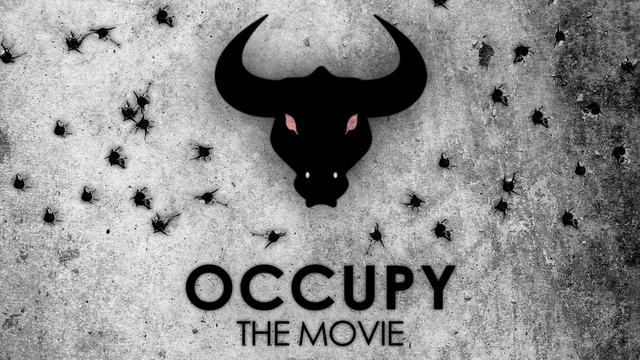In September 2011, thousands of strangers gathered in the most important financial district in the world. They set up camp, sat down and waited. This was the beginning of Occupy Wall Street, the social protest against financial inequality that soon became a global phenomenon. This beautifully shot doc assembles cogent analysis from thinkers, journalists and the activists who took over the streets, to assess the state of a nation during the biggest social uprising in recent history. Could a movement without a leader actually change the world?
"This was the outburst, this was the tantrum, the rebellion that had to happen" says Michael Levitin, co-editor of the Occupied Wall Street Journal.
"You had to take over, physically occupy, and ignore beatings from police. We had to do that as a tactic to wake this country up." Why? In the aftermath of the 2008 global financial crisis more and more Americans faced higher living costs, stagnant wages and ever increasing debt. The
"too big to fail" banks that
had failed were bailed out, only to become
"too bigger to fail than they were before!" in the words of media theorist Douglas Rushkoff.
With no-nonsense gusto this doc uncovers the ties that bind the public's money to risk-based corporate markets, revealing a web of power encircling the individual right up to the American media, Federal Reserve and Presidential administration. But how do you translate entrenched unfairness into social change? For the desperate and exasperated, all roads of protest suddenly converged on the heart of the beast: Wall Street.
"I just remember thinking well, yeah, good luck, like you're gonna occupy Wall Street" says Andy Bichlbaum, one of the Yes Men activists. But soon thousands of hopeful strangers descended on Zuccoti Park in peaceful protest. Encouraging the wrath of right-wing news outlets and state authorities, raw footage shows the beatings, pepper sprays, assaults and demolitions weathered by the occupiers.
As the movement's resilience in the face of opposition encouraged hope, Occupy spread internationally like wildfire in what looked like a worldwide demand for capitalism's flaws to be fixed.
"There's no one leader." says philosopher Cornel West of the movement,
"all the voices are lifted and it's a conversation". But without fixed leadership, the personal hardships of the organizers tasked with
"steering the ship" appear damaging. When more hard-core and even violent factions of the protest threaten to cause an ideological rift, how can the movement assemble and move forward?
In this focused appraisal of the Occupy movement we are shown the fascinating inner-workings of a wave of civil change not seen since Martin Luther King's marches.
"There are generations that complete the journey" says union leader Stuart Applebaum. Whether or not Occupy changed the world or fizzled out in the process, this film shows the presence that it now occupies in the bigger picture of global welfare.
"I think that's what we do with social change. Our role is to move social change forward" says Applebaum.
 In September 2011, thousands of strangers gathered in the most important financial district in the world. They set up camp, sat down and waited. This was the beginning of Occupy Wall Street, the social protest against financial inequality that soon became a global phenomenon. This beautifully shot doc assembles cogent analysis from thinkers, journalists and the activists who took over the streets, to assess the state of a nation during the biggest social uprising in recent history. Could a movement without a leader actually change the world?
In September 2011, thousands of strangers gathered in the most important financial district in the world. They set up camp, sat down and waited. This was the beginning of Occupy Wall Street, the social protest against financial inequality that soon became a global phenomenon. This beautifully shot doc assembles cogent analysis from thinkers, journalists and the activists who took over the streets, to assess the state of a nation during the biggest social uprising in recent history. Could a movement without a leader actually change the world?








